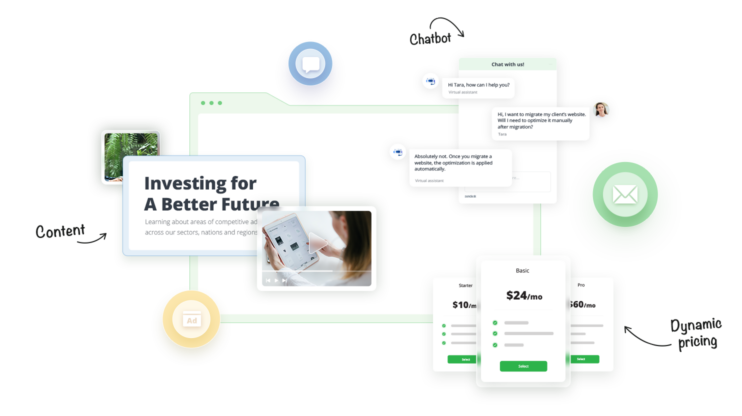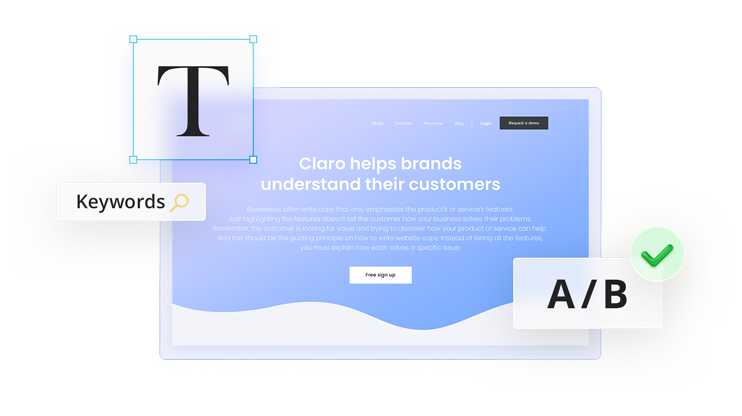No doubt, the application of Artificial Intelligence (AI) in different industries has been exponential in the last two decades. From software development to marketing to content creation, the potential of Artificial Intelligence is rapidly unfolding. Similarly, AI for small businesses surfaced on the scene. In contrast to conventional methods, AI-powered technology can analyze large amounts of data and churn out accurate and actionable insights to aid the decision-making of all business types, thus increasing corporate performance.
Initially, only large corporations with huge budgets had access to AI technology. However, the advent of AI-as-a-Service(AIaaS) has come to level the playground for businesses of all sizes. Small and medium-sized businesses can now employ AI technologies and solutions without breaking the bank or needing to be data scientists themselves.
This article will nose into the problems AI can effectively address for small businesses, several applications of AI in small businesses with tools to actualize these applications, and the risks to look out for when employing AI for small businesses.
In This Article
What problems can Artificial Intelligence solve for small businesses?
In recent years, Artificial Intelligence has emerged as the technology best suited to address a lot of business-related issues. The following are four major issues that affect small businesses and how AI-powered solutions can help solve them.

1. Efficiency
AI-powered tools can automate repetitive processes handled manually, and analyze vast volumes of data, giving firms more time to concentrate on high-level metrics that drive business growth. It also helps to increase productivity and efficiency in daily operations. Whether it be by classifying incoming emails according to their content or differentiating between prospective and unpromising leads, AI can assist with both straightforward and complicated problems, giving teams plenty of time to focus on other crucial activities.
2. Fraud
Algorithms used in Machine Learning (ML) are trained on previous fraud patterns to identify them in present and future transactions. They can process data in real-time to find CEO fraud, fake invoices, payment fraud, and many other types of fraud. AI is a great option because it can keep up with the massive demand and contemporary sophisticated fraud efforts.
3. Customer support
Businesses may use AI technologies to enhance customer service in several ways. An example is classifying support requests and assessing customer sentiment. For your support and product to improve, often before consumers ask for it, you must have insights into customer behavior and sentiment. By employing AI to comprehend your customers’ attitudes toward your goods, you can proactively enhance your offerings.
4. Productivity
With insights into how customers engage with AI, it empowers businesses to continuously enhance their products and services. The use of AI to track what users are saying and detect the emotion behind consumer comments can help put product teams on the right path for consumer satisfaction.
In order to remedy issues before they even arise, AI can also help identify product flaws before people complain about them.
19 tools, tips, and applications of AI in small businesses
AI for small businesses – marketing and sales
The sole purpose of marketing in most cases is to drive sales. Thus, marketing and sales are very interwoven and this makes the workflow of both domains operation-intensive. However, AI-powered tools, such as 10Web AI SEO tool and 10Web AI Marketing Strategy Generator, can streamline presenting a product to market with professional websites and landing pages, create quality content, and close sales with just-enough human interaction.
Additionally, Artificial Intelligence can also enhance the decision-making of small businesses by evaluating consumer interactions with a small business’ product(s) and generating actionable data for statistical purposes.
Related Articles
Tips for using AI for small business marketing and sales
AI-assisted web development
AI-assisted web development streamlines the process of ideating and creating landing pages for product marketing to the deployment of the landing pages to the internet. The best of these types of tools makes the process 10 times faster by generating content and images for the website and providing a simple-to-use drag-and-drop editor for design edits. Examples of these tools are:
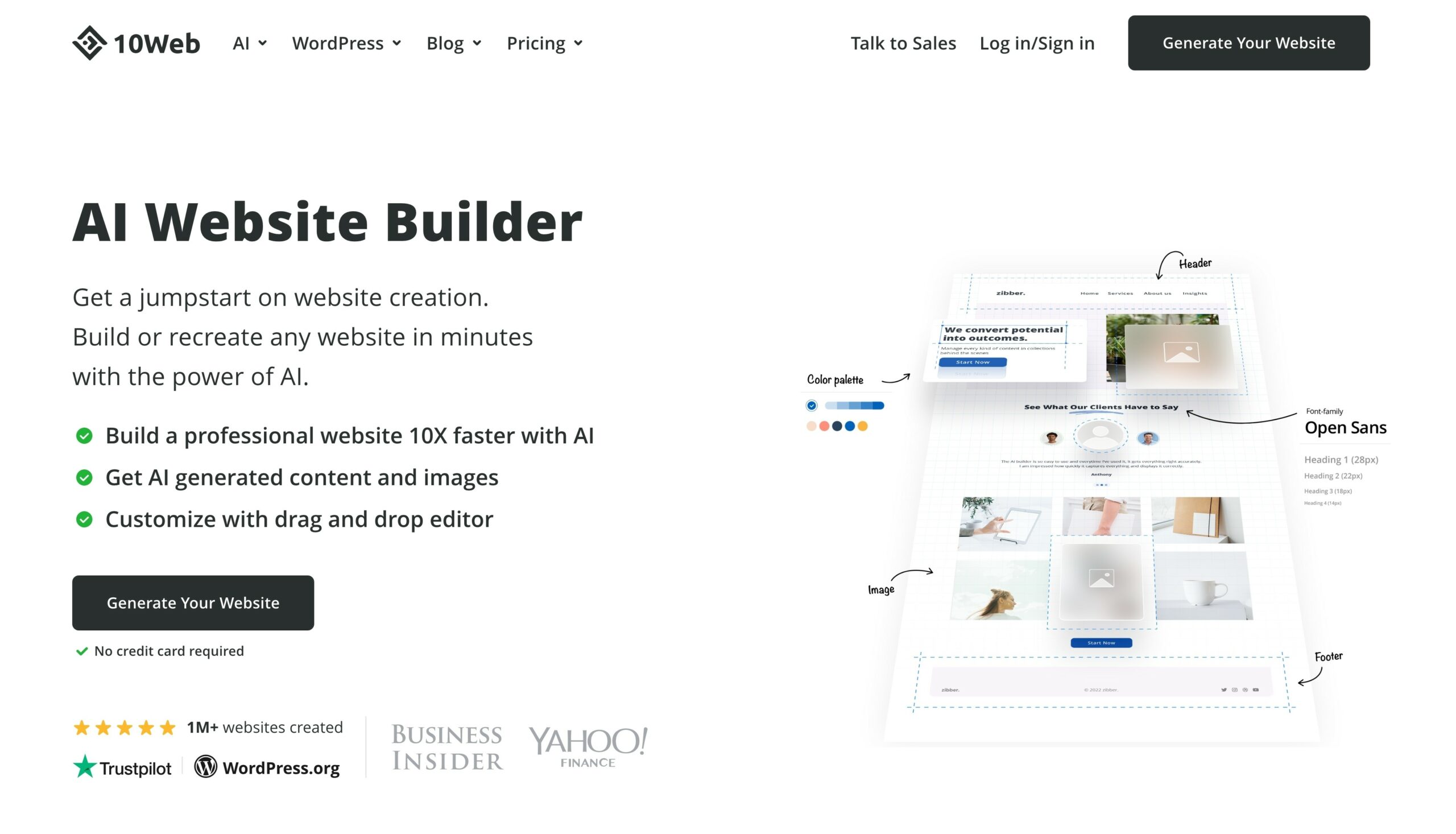
10Web AI Website Builder is a user-friendly tool that builds fully-fledged professional websites using the power of AI. 10Web AI Website Builder generates images and content tailored to business needs that become your property; technically you build a website by simply answering several questions about your business. Later you can edit your website using a drag-and-drop editor based on Elementor.
Webflow
A more complex tool than 10Web AI Builder with a steep learning curve. Webflow empowers small businesses to build simple and complex websites and web applications with its editor and host of plug-and-play add-ons.
Wix

Wix also provides a catalog of ready-made, responsive, and customizable website templates of different variants. It enhances the web design and development process with an AI assistant.
Content creation
AI is useful for website content creation (for landing pages), writing product descriptions, and even blog posts. AI can create natural text (long and short form) that reads like it was written by a human – ChatGPT proved it. The tools listed below are some of the cost-efficient and effective tools for content creation with AI for small businesses.
10Web AI Writing Assistant
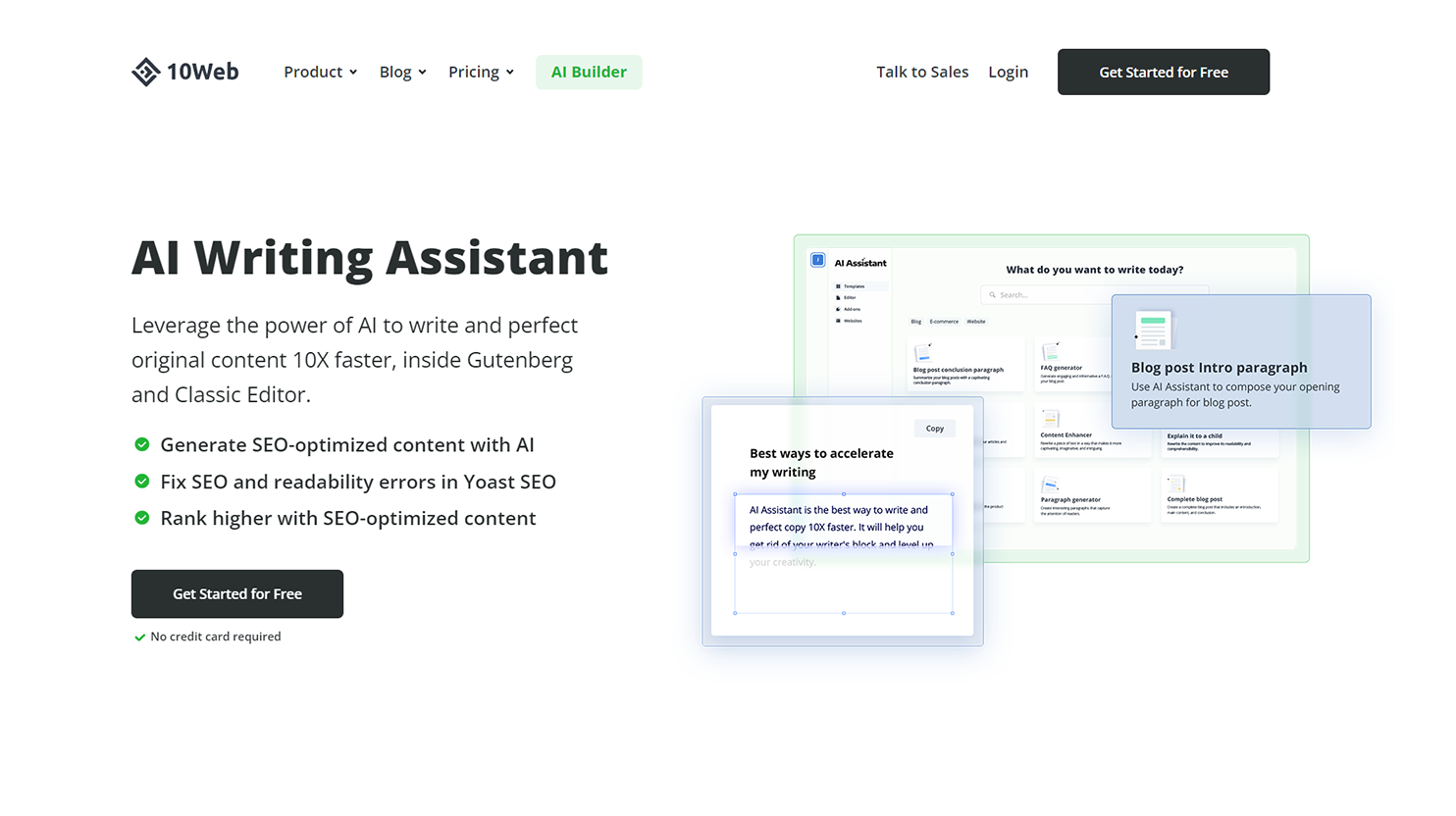
10Web AI Writing Assistant generates content outlines, paragraphs, meta descriptions, meta titles, etc to improve the writing process. It provides 20- customizable content templates to eliminate writer’s block, fixes SEO and readability errors in content, and ensures zero plagiarism.
ChatGPT
A Natural Language Processing (NLP) tool for writing human-readable content. It is built to answer questions in a human-like manner and can create content in specific voice tones.
Grammarly
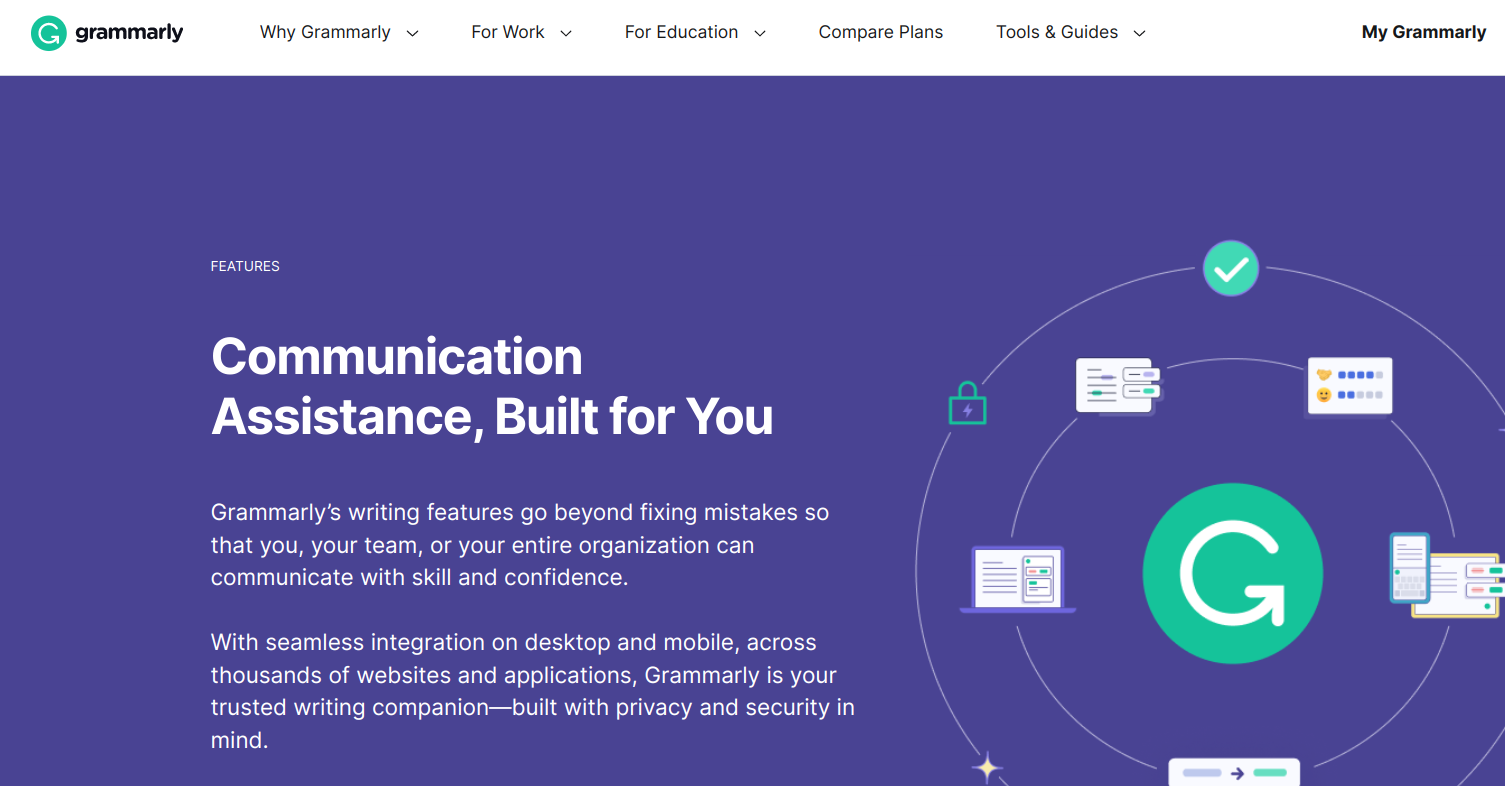
A writing assistant powered by AI that automatically fixes grammar mistakes, enhances writing, and makes suggestions for how to use language and tone. It gives real-time suggestions to improve spelling, clarity, fluency, style, and tone depending on the writing context.
Sales
Getting a client is half the hurdle, closing the deal is the real deal. This is where personalization and appealing to a client’s deepest desires come to play. With AI-assisted functionalities, the tools below create human-like interactions with generated leads from marketing to close a deal successfully and increase business revenue.
Drift

Drift accelerates income by establishing timely, personalized discussions with your prospects and customers with conversational AI. Drift also provides real-time notifications and AI-powered insights to peek into buyers’ intent by analyzing their interactions with web pages.
Exceed.ai
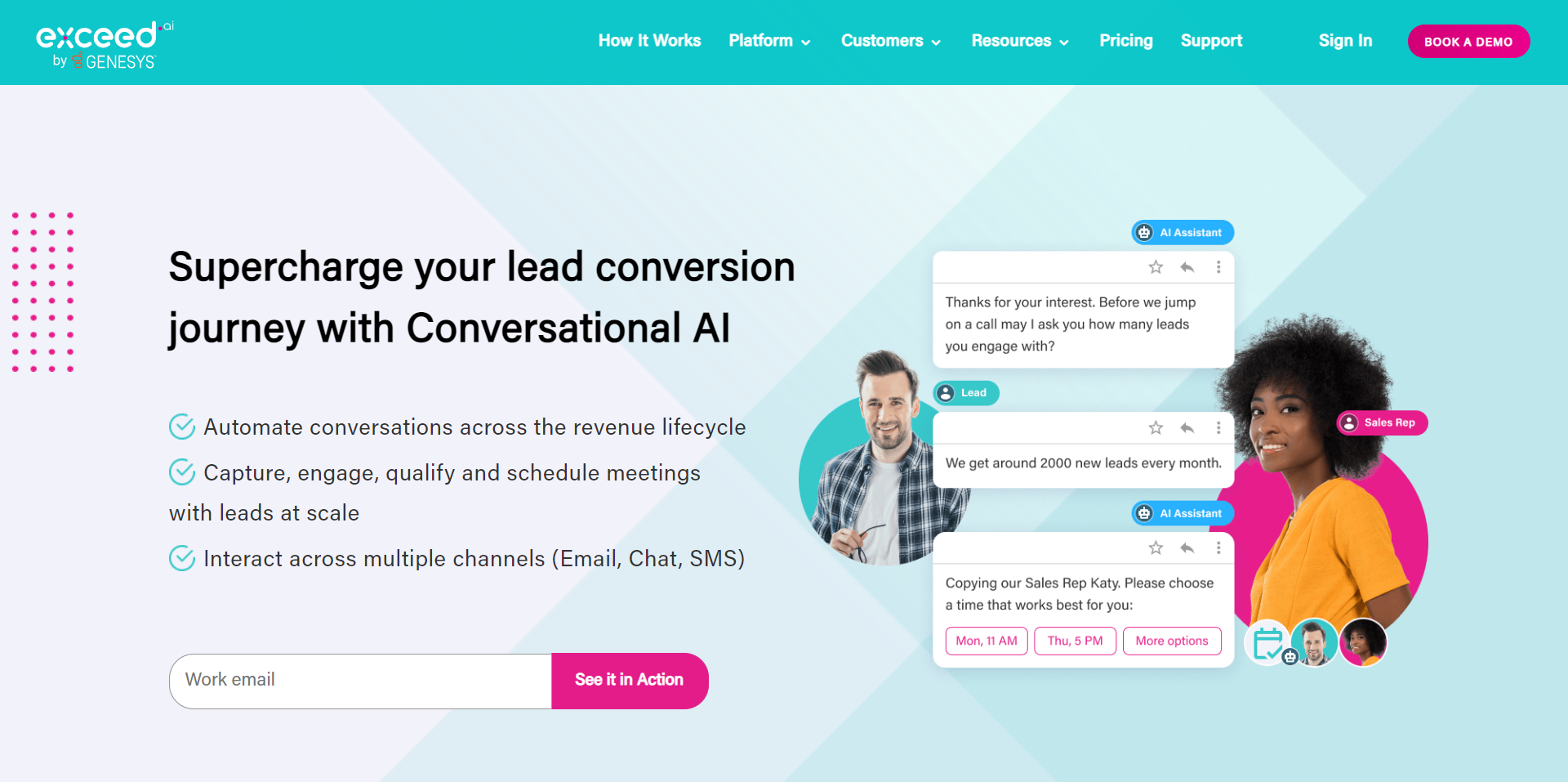
Exceed.ai uses conversational AI to automate conversations for human-like interactions with sales prospects. It also integrates with email, website chat, and SMS, ensuring that sales personnel jumpstart and close deals efficiently.
AI for small business – accounting and financial management
Bookkeeping, payrolling, invoicing, and forecasting have been done manually for decades. Financial management tools that leverage AI help small businesses see the bigger picture by focusing on the deciding factors instead of doing easily automated tasks.
Tips for using AI for small business accounting and financial management
AI for small businesses in the financial aspect can be summed up into one chunk. Tracking inventories, handling payables and receivables, cash flow reconciliation, bookkeeping, and automating other routine tasks are interconnected. They can be handled with one of the tools below depending on business needs:
Xero
Xero is a fully-fledged accounting software for automating routine accounting processes, forecasting account balances, handling bills payment, cash flow reconciliation, calculating sales tax, and so much more. Xero also supports real-time collaboration with multiple users.
QuickBooks
QuickBooks for small businesses handles invoicing, expense and inventory tracking, and accounting reports with AI assistance. It also supports multiple users for real-time collaboration.
AI for small business – Human Resource Management
The importance of having an HR team cannot be overstated, even for small businesses. Onboarding new hires, interpersonal conflicts, and other issues can all be handled by the HR department as needed. These processes can be overwhelming especially for an understaffed small business, but the good news is that modern AI and machine learning techniques can enhance the HR practices and procedures of your business.
Tips for using AI for small business Human Resource Management
Protect sensitive HR data
Work-from-home is being embraced worldwide as an alternative mode of working. It is difficult for most small businesses to protect sensitive HR data because they don’t have in-house cybersecurity teams to protect confidential data from leaking and detect anomalies within internal network requests. AI solutions help to counter these issues.
Oracle HCM
Oracle HCM is one of the cloud-based AI tools for small businesses designed for small businesses to streamline their HR processes. It offers features such as payroll management, talent acquisition, and employee engagement to help businesses effectively manage their workforce.
Automate recruitment processes
AI solutions like Application Tracking Systems(ATS) cross-check applicants’ resumes with an advertised job description and select suitable applications for HR personnel to work with. The tools below are some of the most cost-efficient selections on the internet.
BambooHR
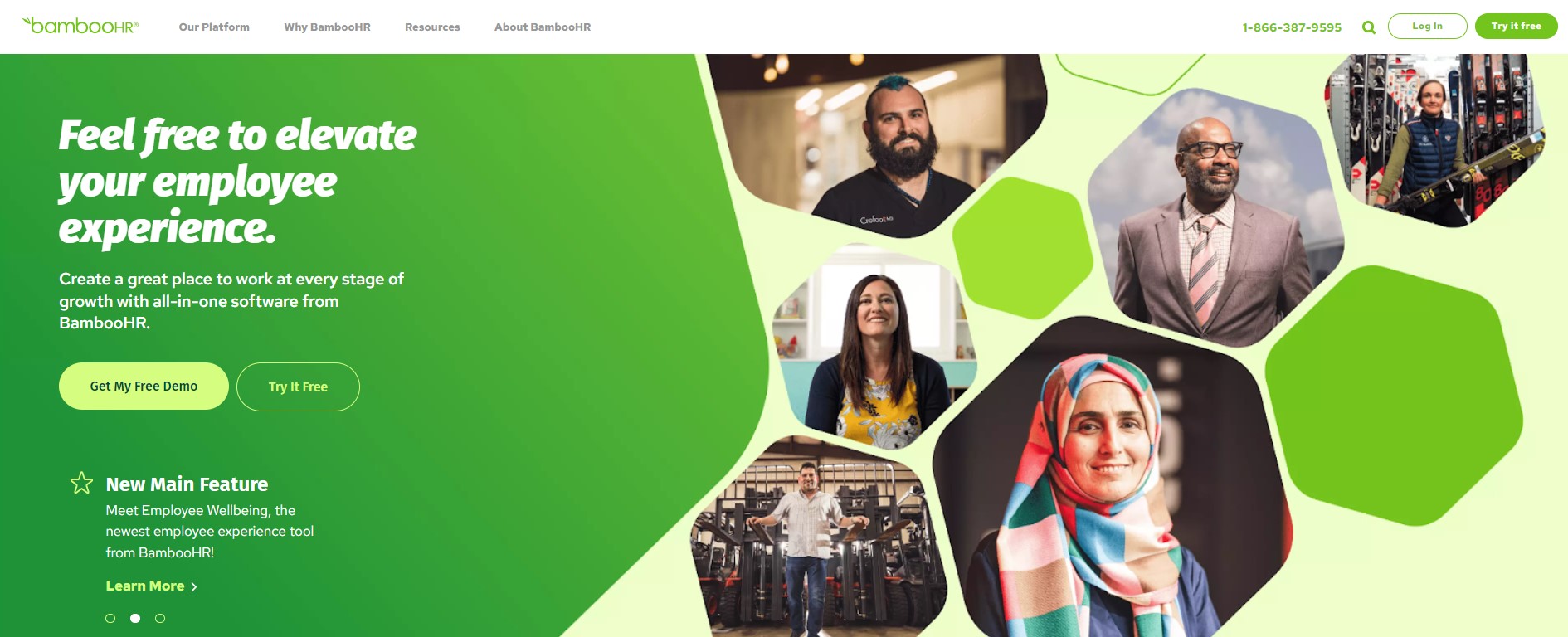
BambooHR is a cloud-based human resources software that is designed for small businesses. It helps streamline HR processes such as onboarding, performance management, time tracking, and reporting, enabling businesses to manage their employees more efficiently.
Zoho
Zoho is an all-in-one cloud-based ai tool for small businesses to manage and automate their operations. With modules for CRM, finance, HR, marketing, and more, Zoho offers a comprehensive solution for streamlining business processes and improving productivity.
Workable
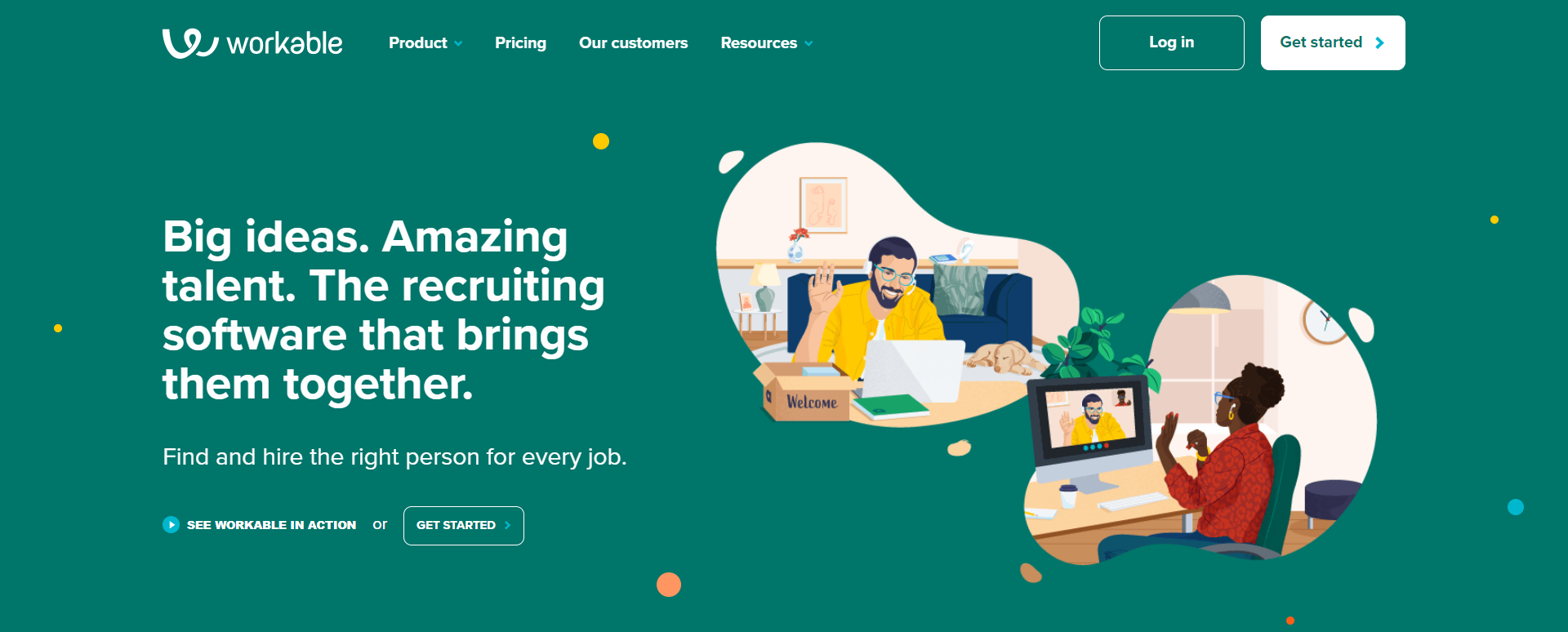
Workable is a powerful yet user-friendly online recruiting software designed for small businesses. With its intuitive interface and robust features, Workable makes it easy for small business owners to streamline their hiring process and find the right candidates for their team.
Employers can find materials or knowledge bases by using the appropriate AI tools. They can also help persons in need get in touch with the appropriate HR representative. The efficiency and availability of your HR team are both increased by AI.
Additionally, AI technology in Human Resources (HR) management can point newly hired or onboarded personnel toward tutorials or resources, and aid in giving new hires advice and information. As onboarding is effectively the “first impression” that new workers get of a company, this can be tremendously helpful. You only get one chance to make a first impression, so making the most of it can build more enthusiasm in new employees. More importantly, a great first-time onboarding experience is a sure way to ensure long-term employee commitment.
Other applications of AI in small businesses
Supply chain
AI in the supply chain can be used to create digital twins, simulate scenarios, and analyze patterns. Retailers and business owners can use this to strengthen the resilience of their supply chains and make informed decisions. Practical applications of Artificial Intelligence for small businesses in the supply chain industry are on-time delivery predictions for excellent customer experience and demand predictions based on industry-wide trends.
Customer service
AI chatbots are frequently used today to have autonomous conversations with clients seeking support. Customers will most likely be unaware that they are speaking to a robot since these bots have become so clever. Also, they make it considerably simpler and less expensive to provide quick service at scale with high availability, even with a small workforce.
Three risks to watch out for when integrating AI into your small business
1. Security issues
AI systems are becoming more specialized and capable of handling unpredictable data volumes, but they are also becoming more focused. Sensitive information may be lost or stolen as a result, which could have detrimental effects on a company.
The potential for hacking and data breaches is one of the major security dangers connected with AI. Cybercriminals are more likely to target AI systems as they grow more integrated into company processes. This is because AI systems frequently store and analyze a lot of sensitive data, such as personal data or financial transactions. This data may be lost or stolen as a result of a successful hack of an AI system, which could have detrimental effects on a company’s finances and reputation.
2. Bias and discrimination
Since human beings frequently develop the data sets that are used to train AI systems, these data sets may contain biases that are a reflection of the prejudices and stereotypes of the creators. As an illustration, biased AI systems may reinforce and even magnify societal biases like racism, sexism, and ageism, which could result in the unfair treatment of particular racial, gender, and age groups. Corporations may suffer significant legal and reputational repercussions as a result of biased decisions and outcomes.
3. Dependence on AI vendors
Dependence on a single provider has the potential to be one of the key risks of AI. Companies depend more and more on AI systems to run their business, which makes them more reliant on the suppliers servicing such systems.
Some of the risks associated with this dependence are
- Vendor lock-in: It gets more challenging for businesses to move to a different vendor as they become more reliant on the AI services of a certain vendor. And, this can end in unfavorable circumstances in the long run.
- Lack of adaptability: Organizations that rely significantly on a single vendor’s AI service might find it more difficult to move with the times or improve internal processes. As a result of this, their capacity to adapt to fresh possibilities or problems may be hampered.
- Vendor failure: Businesses that rely significantly on a single vendor’s AI service may be at risk if that vendor goes out of business or is unable to keep providing the service. Operations may be interrupted as a result, and the company may even fail.
Finally, although AI tools can improve small businesses in different aspects, employing AI is a decision that has to be thought through with respect to cost. If manual operations cost less than subscribing to an AI service in the long run, stick with manual operations. If it’s the other way around, subscribe to a cost-efficient AI service.
Conclusion
Learning how to use AI for small businesses would undoubtedly be a valuable addition to entrepreneurs in today’s corporate world. Small businesses can increase the productivity of their employees, better manage and secure data, improve customer and audience interactions, automate routine tasks, and lots more depending on their industry.
This article has explored the problems AI can solve for small businesses, several different industry applications for AI for small businesses, useful AI tools in the respective industries, and the risks associated with employing Artificial Intelligence in your business process. Lastly, the decision to use an AI tool for your small business should be dependent on an unbiased cost-benefit analysis.








